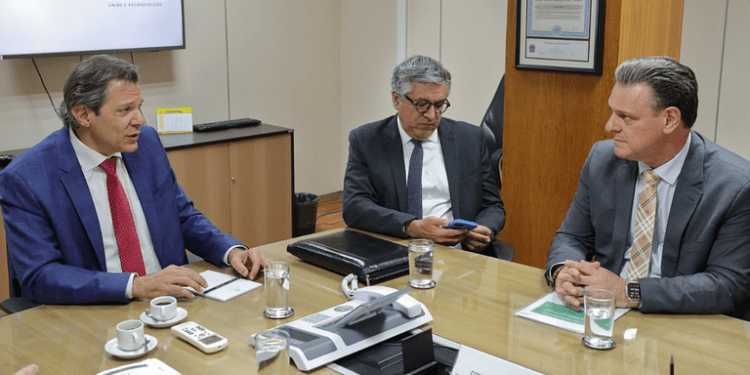Ministers Collaborate with Agricultural Sector on Next Year’s Agricultural Policy
Ministers Carlos Fávaro of Agriculture and Livestock, Fernando Haddad of Finance, and Alexandre Padilha of Institutional Relations met with representatives from the Parliamentary Front for Agriculture (FPA) to finalize details for the upcoming 2024/2025 Agricultural Plan. The meeting, held on Tuesday (18), focused on incorporating suggestions from the FPA, the National Confederation of Agriculture (CNA), and the Brazilian Cooperatives Organization (OCB) into the plan’s framework.
“We have gathered suggestions from work done by the FPA in collaboration with CNA and OCB, so that we can take into account the numbers and proposals for the announcement of the Agricultural Plan,” stated Minister Fávaro, announcing that the launch is scheduled for next week in Rondonópolis (MT).
The proposals submitted to the ministers included refinements in key plan areas such as the Rural Insurance Premium Subsidy Program (PSR), rural credit volumes, equalization, sustainability, and cooperativism.
“We had an open and very productive meeting. I am confident that we will produce an even better Agricultural Plan that will increasingly meet the needs of our producers,” emphasized Minister Fávaro.
In 2023, the Federal Government launched its largest Agricultural Plan to date, allocating over R$ 435 billion in rural credit for small, medium, and large-scale producers, marking a 28% increase from the previous plan. Of this amount, R$ 364.22 billion was directed towards corporate agriculture.
The current plan aimed to promote environmentally sustainable production systems, with reduced interest rates for pasture recovery and incentives for producers adopting more sustainable agricultural practices.
Regarding funding sources, Minister Fávaro highlighted agreements on the allocation of resources for equalization. “It is important to direct more resources, for example, from rural savings, LCA [Agricultural Credit Letter], and sight deposits, which significantly reduce costs, allowing banks to offer producers the lowest possible interest rates,” he affirmed.
Error




